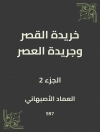The Complete Poetry of Thomas Hardy is an expansive collection that showcases the profound depth and emotional resonance characteristic of Hardy’s poetic oeuvre. Bursting with lyrical beauty, these poems traverse themes of love, loss, nature, and existential reflection, frequently set against the backdrop of rural England. Hardy’s literary style, marked by a blend of stark realism and rich imagery, invites readers into a world where human experience is irrevocably tied to the forces of nature and fate. The chronological arrangement of the poems offers insights into his evolving perspective, particularly in juxtaposition with the societal shifts of the late Victorian and early 20th centuries. Thomas Hardy, renowned as both a novelist and poet, was deeply influenced by the rural landscapes of his native Dorset and the tumultuous social changes of his time. His early training as an architect and lifelong fascination with the natural world informed his poetical articulation, leading him to question the human condition within a vast, indifferent universe. Hardy’s own experiences with love and loss echo through these verses, making them a poignant testament to his understanding of life’s complexities. Readers are encouraged to delve into The Complete Poetry of Thomas Hardy, as it serves not only as a historical reflection of its time but also as a timeless exploration of human emotions. Each poem challenges and comforts, urging us to contemplate our place in the world and the inevitable passage of time. This collection is an indispensable addition for both Hardy aficionados and those venturing into his poetic landscape for the first time.
About the author
Thomas Hardy (1840–1928) was an eminent English novelist and poet who played a pivotal role in the transition from Victorianism to modernism in English literature. Known for his somber and poignant portrayal of rural life in Wessex, Hardy’s fictional county based on the real landscapes of southwest England, his works delineate the tragic conflicts between individual desires and societal constraints, nature and modernity, and inevitability and chance. Hardy’s literary repertoire includes celebrated novels such as ‘Tess of the D’Urbervilles’ (1891) and ‘Far from the Madding Crowd’ (1874), which established him as a formidable figure in Victorian literature. His remarkable contribution to poetry is compiled in ‘The Complete Poetry of Thomas Hardy, ‘ which showcases the breadth of his poetic achievements, from lyricism infused with Dorset dialect to somber elegies and explorations of human emotions and nature’s whims. Hardy’s narrative style, characterized by an omniscient perspective, rustic settings, and a deep sense of fatalism, contributes to the unique quality of his work. Hardy’s influence extends beyond literature, his poetic and novelistic visions have shaped readers’ understanding of the pastoral and its relentless transformation under industrialization’s onslaught. Posthumously, Hardy’s poetic legacy has continued to fascinate readers and critics, affirming his stature as a literary giant whose works reflect a profound understanding of the human condition.












